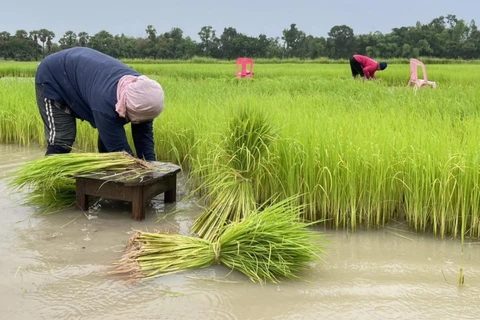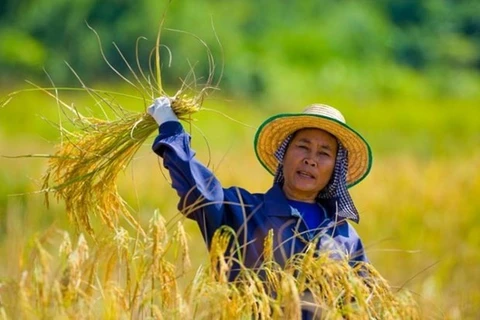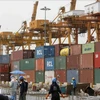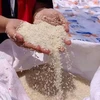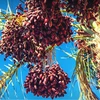Bangkok (VNA) - Thai farmers are being asked not to grow off-season rice as the country’s water supply is now low due to the impact of climate change and other factors.
Authorities instead suggested farmers switch to drought-tolerant crops such as tomato, sweet corn, pumpkin, watermelon and peanut as they can yield
better profits.
Deputy director-general of the Department of Agricultural Extension Krongsak Songraksa said climate change and a moderate iteration of the El Nino phenomenon have affected Thailand, resulting in a lower water supply in recent years.
A newly adapted water distribution plan is now in place to support plantations where crops have not been harvested, he said.
According to him, around 12.6 billion cubic metres (51%) of the nation's water supply has been allocated this year. Thus, the water supply may not be sufficient for the second-crop farming of off-season rice.
He said off-season rice requires 1.5 billion cubic metres of water per rai (1 rai = 0.16 hectare), while a drought-tolerant crop only needs 30% to 70% as much./.
Authorities instead suggested farmers switch to drought-tolerant crops such as tomato, sweet corn, pumpkin, watermelon and peanut as they can yield
better profits.
Deputy director-general of the Department of Agricultural Extension Krongsak Songraksa said climate change and a moderate iteration of the El Nino phenomenon have affected Thailand, resulting in a lower water supply in recent years.
A newly adapted water distribution plan is now in place to support plantations where crops have not been harvested, he said.
According to him, around 12.6 billion cubic metres (51%) of the nation's water supply has been allocated this year. Thus, the water supply may not be sufficient for the second-crop farming of off-season rice.
He said off-season rice requires 1.5 billion cubic metres of water per rai (1 rai = 0.16 hectare), while a drought-tolerant crop only needs 30% to 70% as much./.
VNA

